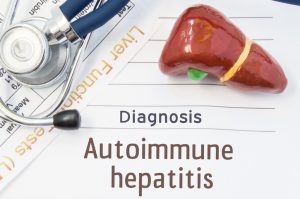What Causes Autoimmune Hepatitis?
 Autoimmune hepatitis can cause serious liver problems when it is left untreated. Knowing more about this condition can help ensure that you get the treatment you need.
Autoimmune hepatitis can cause serious liver problems when it is left untreated. Knowing more about this condition can help ensure that you get the treatment you need.
Is Autoimmune Hepatitis Life-Threatening?
Autoimmune hepatitis can become life-threatening when it isn’t properly treated. Without treatment, you can end up developing cirrhosis, or scarring of the liver. Over time, liver failure can also occur when this condition is left untreated. It’s important to seek a diagnosis and treatment if you think you might have this disease.
Is Autoimmune Hepatitis Curable?
There is no cure for autoimmune hepatitis. However, you can manage your symptoms and lower your risk of serious liver damage with treatment. This disease occurs when your immune system attacks your liver. The exact cause isn’t fully known, but certain risk factors are associated with it, such as hereditary factors, infections, and other conditions. Type 1 autoimmune hepatitis tends to occur in those who have other autoimmune diseases, such as rheumatoid arthritis. Type 2 occurs mainly in children, especially those who have an autoimmune condition.
Can You Live a Normal Life with Autoimmune Hepatitis?
If you are able to manage your symptoms with medication and other treatment that your doctor recommends, you can resume your daily activities with this condition. Keeping this disease under control helps reduce your risk of liver scarring and liver failure, as well as other complications.
Can Autoimmune Hepatitis Go Away?
Autoimmune hepatitis does not go away. It’s important to understand that you might not experience symptoms of this disease in the early stages. As it progresses, you might have symptoms, such as:
- Fatigue
- Abdominal Pain
- Yellowish Skin
- Yellowish Eyes
- Rashes
- Joint Pain
You should see your doctor if you have been experiencing any signs or symptoms of this disease.
What Foods Should You Avoid with Autoimmune Hepatitis?
You should include more fruits and vegetables in your diet, and avoid drinking alcohol since this can make liver problems worse. If you already have cirrhosis, you should avoid eating meats and seafood that are undercooked or raw. You should also follow your doctor’s recommendations for dietary changes, such as limiting salty and fatty foods.
What Drugs Can Trigger Autoimmune Hepatitis?
Certain medications can end up triggering this condition in some individuals. A few of the medications that are associated with this disease include statins, minocycline, hydralazine, and nitrofurantoin. Keep in mind that treatment for this condition typically involves the use of prednisone and other medications for a certain amount of time. These medications help manage inflammation and lower immune system activity.
If you need more information about autoimmune hepatitis, make an appointment today with Gramercy Park Digestive Disease Center. Our experienced gastroenterologists can provide treatment options and manage your symptoms in the most effective way possible.


